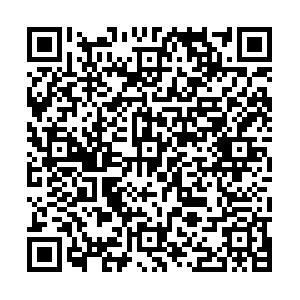Research on the Innovative Path of the Teaching Reform of Ideological and Political Courses for Graduate Students from the Perspective of Omni Media
-
摘要: 全媒体时代信息传播方式的深刻变革给高校研究生思想政治教育理论课程带来了新的挑战,具体表现为话语传播多元化加剧了意识形态甄别的难度、信息内容多元化增加了教学内容筛选的难度、信息交互方式扁平化增加了教学方式的难度、信息技术的专业化增加了教学的技术难度。研究生思想政治理论课教学必须转变教学理念、拓展教学资源、创新教学方法、完善教学评价体系,构建以全媒体为平台,课程资源和网络资源共享、课堂教学和课外实践互动、教师评价和学生自评互补的育人过程,打造学生终身受益、真正喜欢的思想政治理论课,实现思想政治教育和知识体系教育的有机统一、价值引领和能力培养的有机统一、教书和育人的有机统一。Abstract: In the era of omni media, the profound change of information communication mode has brought new challenges to the ideological and political education theory curriculum of university graduate students, which mainly includes the intensification of the difficulty of ideological discrimination caused by the diversification of discourse communication, the increase of the difficulty of teaching content screening caused by the diversification of information content, the increase of the difficulty of teaching methods caused by the flattening of information interaction methods, and the increase of the technical difficulty of teaching caused by the specialization of information technology. The teaching of ideological and political theory course for graduate students must change the teaching concept, expand teaching resources, innovate teaching methods, improve the teaching evaluation system, and then build an educational process of sharing curriculum resources and network resources, classroom teaching and extracurricular practice interaction, teacher evaluation and student self-evaluation complementation based on the omni media platform, so that students can benefit from the ideological and political theory courses they really like, and realize the organic unity of ideological and political education and knowledge system education, the organic unity of value guidance and knowledge imparting and ability training, and the organic unity of teaching and education.
-
[1] 新华社新闻研究所课题组. 中国传媒全媒体发展研究报告[J]. 科技传播,2010(4):81-87. [2] 习近平. 加快推动媒体融合发展构建全媒体传播格局[EB/OL]. (2019-03-16)[2022-05-22]. http://www.qstheory.cn/dukan/qs/2019-03/16/c_1124241424.htm. [3] 中国教育在线, 编. 2020年全国研究生招生调查报告[EB/OL]. (2020-10-31)[2022-05-22]. https://www.eol.cn/e_ky/zt/report/2020/content01.html. [4] 高利,束洪春. 新时代研究生思想政治教育探析[J]. 研究生教育研究,2020(3):19-22. doi: 10.19834/j.cnki.yjsjy2011.2020.03.04 [5] 张青,张波. 全媒体视域下高校意识形态安全面临的现实挑战及实践进路[J]. 学校党建与思想教育,2020(13):29-32. doi: 10.19865/j.cnki.xxdj.2020.13.006 [6] 卢勃. 论新媒体视角下研究生思想政治教育变革[J]. 当代教育理论与实践,2013,5(1):119-120. doi: 10.3969/j.issn.1674-5884.2013.01.046 [7] 潘建红,张晓萌. 高校辅导员队伍制度化建设探析[J]. 北京科技大学学报(社会科学版),2022,38(4):389-395. [8] 习近平. 把思想政治工作贯穿教育教学全过程开创我国高等教育事业发展新局面, 在全国高校思想政治工作会议上讲话[N]. 人民日报, 2016-12-9(01). [9] 曾丽华. 全媒体时代高校思政课教师能力建设探析[J]. 学校党建与思想教育,2021(15):94-96. doi: 10.19865/j.cnki.xxdj.2021.15.025 [10] 习近平出席全国宣传思想工作会议并发表重要讲话[EB/OL]. (2018-8-22)[2022-5-23]. http://www.gov.cn/xinwen/2018-08/22/content_5315723.htm. [11] 教育部关于高等学校研究生思想政治理论课课程设置调整的意见[EB/OL]. (2010-08-06)[2022-5-23]. http://www.moe.gov.cn/srcsite/A13/moe_772/201008/t20100806_108814.html. [12] 习近平. 用新时代中国特色社会主义思想铸魂育人 贯彻党的教育方针落实立德树人根本任务[EB/OL](2019-3-18)[2022-5-23]. http://www.xinhuanet.com/politics/leaders/2019-03/18/c_1124250386.htm. [13] 研究中国青年运动要回答好两个“为什么”[EB/OL](2019-04-25)[2020-05-23]. https://baijiahao.baidu.com/s?id=1631743915612398602&wfr=spider&for=pc. [14] 习近平. 推动媒体融合向纵深发展 巩固全党全国人民共同思想基础[EB/OL](2019-4-25)[2020-05-23]. http://www.gov.cn/xinwen/2019-01/25/content_5361196.htm. [15] 董扣艳. 全媒体时代思想政治教育的媒介逻辑及其内在向度[J]. 思想政治教育研究,2022,38(2):93-97. [16] 卢忠萍,王欣. 全媒体时代思想政治教育环境研究[J]. 思想理论教育导刊,2021(12):119-123. doi: 10.16580/j.sxlljydk.2021.12.028 [17] 顾慧. 融媒体背景下高校思政课教师队伍建设与课程改革创新研究[J]. 科研管理,2022,43(4):210. [18] 彭艺丞,徐鹿童. 新媒体背景下的大学生思政工作探究[J]. 中学政治教学参考,2022(15):28-30. [19] 刘隽,范国睿. 高校“课程思政”改革背景下师生互动对于学生自我收获感与满意度的影响机理−基于结构方程模型的实证分析[J]. 现代教育管理,2019(5):117-123. doi: 10.3969/j.issn.1674-5485.2019.05.021 [20] 岳云强,吕素霞. 构建发展性研究生思想政治教育测评体系[J]. 学校党建与思想教育,2009(25):36-38. -

 点击查看大图
点击查看大图
计量
- 文章访问数: 574
- HTML全文浏览量: 292
- PDF下载量: 66
- 被引次数: 0



 下载:
下载:
